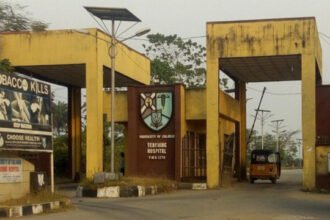In Bwari Area Council of the Federal Capital Territory, many public primary school pupils are expressing mixed emotions following the suspension of the prolonged strike by their teachers.
According to Educa.ng’s detailed education report, several pupils interviewed after resumption on Thursday shared concerns about how they would make up for the significant academic time lost during the strike.
The Nigeria Union of Teachers (NUT), FCT chapter, had announced on Tuesday the end of its over three-month strike, directing all primary school teachers to resume classes immediately. The industrial action, which began on March 24, 2025, was triggered by unresolved issues regarding unpaid arrears and the implementation of the new national minimum wage.
The strike was called off after the Minister of the Federal Capital Territory, Nyesom Wike, convened a stakeholders’ meeting to address the deadlock.
However, many pupils expressed unease over how their academic calendars would be adjusted. Joshua Peter, a Primary Four pupil, lamented that while it felt good to return to school, anxiety lingered.
“Our friends in private schools are already writing exams and preparing for holidays, but we’ve missed an entire term,” he said. “We’re not even sure how we’ll catch up.”
He further mentioned that classes were yet to resume fully, as students were only asked to clean the school environment for now.
Another pupil, Mercy Gwoza, shared similar concerns, stating that she hoped teachers wouldn’t rush through the syllabus.
“I’m worried they’ll speed through everything to cover lost ground,” she said.
Meanwhile, Jamiu Mahmoud, another pupil, expressed his excitement about being back among friends but feared academic challenges ahead.
Parents also voiced their concerns. Mrs. Manji Amos said she was relieved by the resumption but deeply worried about learning gaps.
“Authorities must take deliberate steps to address this setback,” she noted.
Educational consultant Mr. Tanimu Abdulmalik advised schools to conduct immediate assessments to gauge pupils’ academic standing, suggesting targeted lessons and extended school hours to bridge gaps.
However, Educa.ng also observed that many schools, though reopened, still had pupils sitting idle without active classroom instruction.




